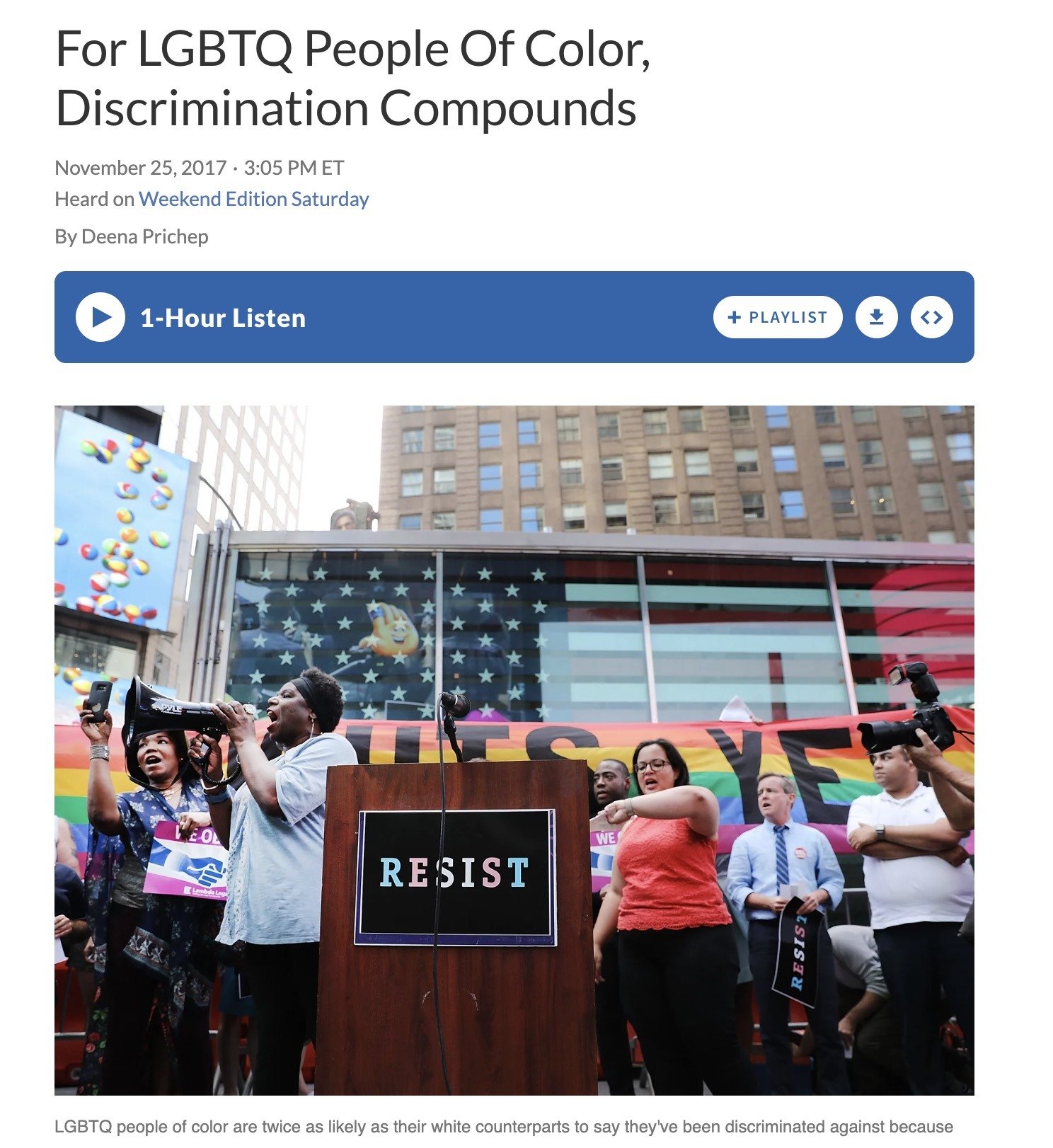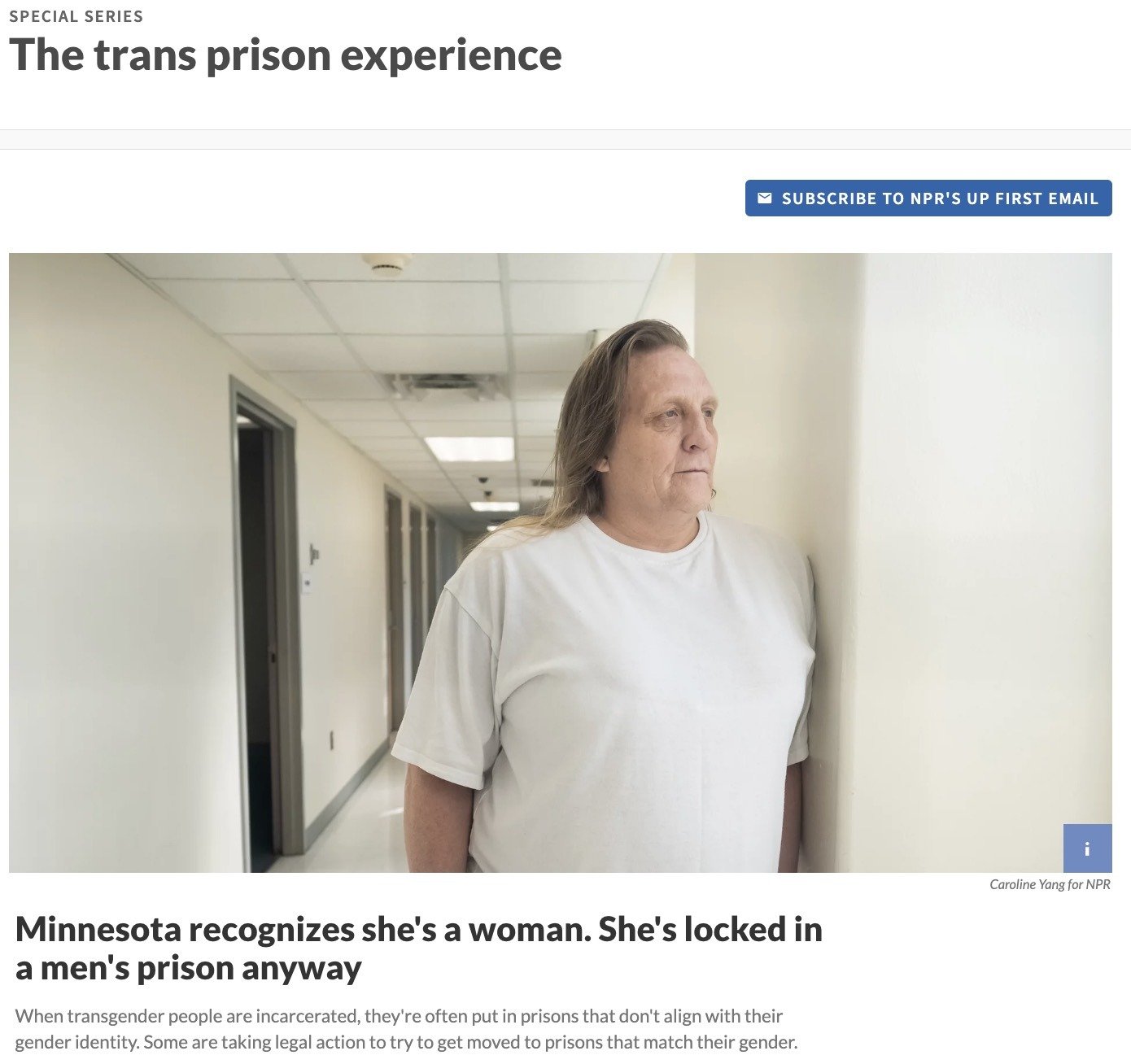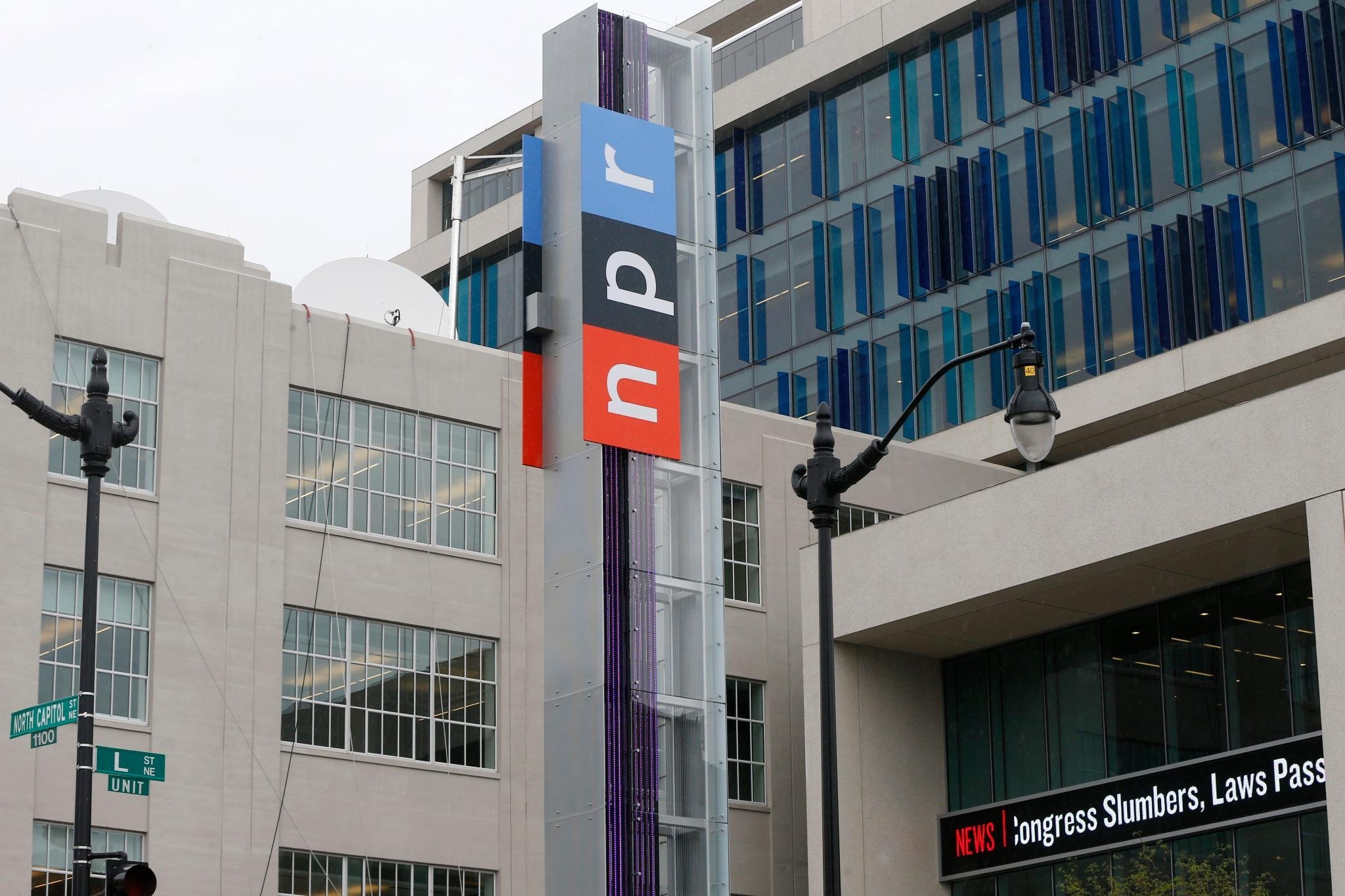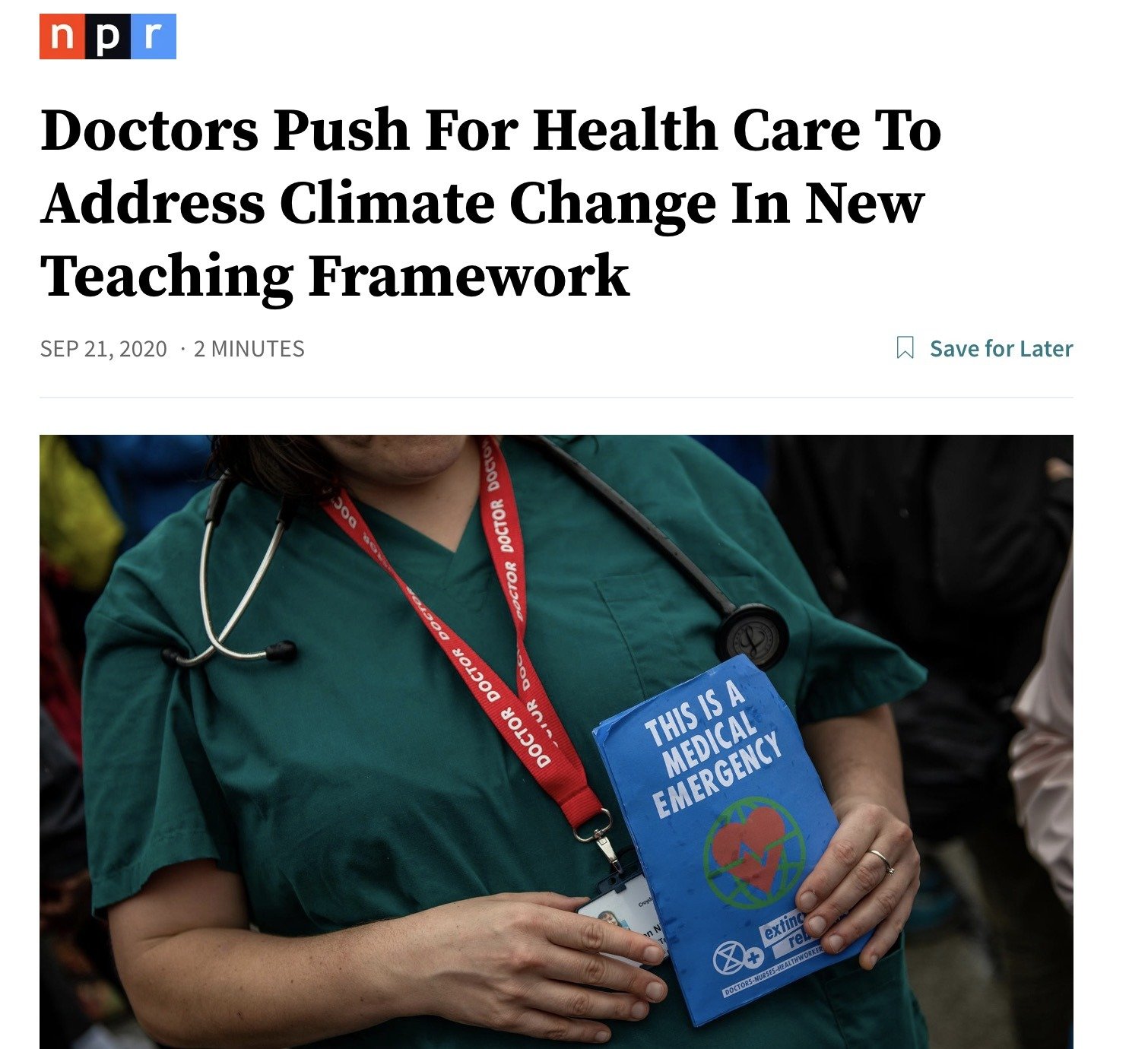Repost: Graham Hillard, "... it’s time to defund NPR"
For obvious reasons, I’ve been behind on writing, work and more. I have been doomscrolling and reading news nonstop for 73 days. I tried to write one long piece, but it’s still no where near ready for publication. I want to repost a few articles from this period, starting with an old one.
I never could stand New York Times, which I’ve condemned many times prior. But I had hopes for NPR, despite the one sided, anti-Israel coverage during previous Israel-Islamist escelations. New York Post has been a beacon during these times. They have been honest.
The following repost relates to NPR, which has been going downhill since around when they fired Garrison Keillor. Once my favorite radio station, I spent the first month of the war telling family and friends to stop doanting to them. NPR has blood on its hands.
Since this article does not realte to Judaism, I can post it on my main blog. As the author writes, the issue goes beyond whether you support trans rights, DEI and other takes they have. The issue is that they’re over the top, and get funding. They feign acting like journalists, but when they make a mistake, they point fingers. For decades, NPR, especially shows like Car Talk and A Prarie Home Companion, were the best cultural representations of America, making us proud to be America. NPR has become a disgrace.
Original link: https://nypost.com/2023/04/21/as-public-radio-becomes-stridently-left-wing-its-time-to-defund-npr/
As public radio becomes stridently left-wing, it’s time to defund NPR
By Graham Hillard; Published April 21, 2023, 8:06 p.m. ET
NPR was recently labeled "Government-funded Media" on Twitter.
In February of this year, NPR announced in an internal memo that its “financial outlook [had] darkened considerably over recent weeks.”
The self-prescribed medicine? The elimination of “many” already vacant positions and a decimation (in the original “one-tenth” sense) of the media company’s existing workforce.
That the broadcaster had already implemented, in November 2022, a hiring freeze, travel restrictions, and a $20 million budget cut made the newest pill all the harder to swallow.
Would “All Things Considered” have to limit its remit to “some” things?
Hardly had the news from NPR’s Washington, DC, headquarters broken when the broadcaster called an “all-hands” meeting to discuss the layoffs and hear employee feedback.
Predictably, the media company’s woker hands had grievances to air.
Never mind that NPR had structured its layoffs with an eye toward preserving its existing racial balance, according to CEO John Lansing.
Staff members who had spent much of their careers ferreting out racism in the wider world now turned their binocular vision on their bosses.
Employees at the all-hands meeting “grilled” NPR executives about the “races and identities” of those who had been let go, according to a report by Bloomberg’s Ashley Carman.
NPR has covered a lot on gender and racial inequalities.
Invited by Lansing to “turn down [their] rhetoric,” aggrieved workers “interpreted [that remark] as tone-policing and felt uncomfortable.”
(For the woke, feeling uncomfortable and experiencing actual death are functionally indistinguishable.)
But what else to expect?
Before Ukraine coverage pushed aside other priorities, seemingly every second or third story from the public broadcaster had to do with alleged race and gender “inequities.”
The “bias” narrative was the only lens through which these employees were trained to see events, even those that happen to them.
It is worth pausing briefly to consider a few recent lowlights that are, unfortunately, representative of NPR on the whole.
Take the subject of transgenderism, an NPR idée fixe that feels at times like the broadcaster’s sole journalistic concern.
To the dismay of both conservatives and reality-adjacent liberals, an NPR news article reported late last month that “there is limited scientific research” supporting the notion that biological male athletes have an innate physical advantage over females.
While the broadcaster walked back the claim two days later, the incident was nevertheless revealing.
Common sense, hard data and the experience of billions across the generations are as nothing compared to the demands of contemporary leftist orthodoxies.
Some of NPR’s coverage on gender on its website.
If such a thing is possible, NPR’s coverage of race is often even more insidious, partaking as it does of an unnuanced victimhood essentialism that strips people “of color” of their full, complicated humanity.
In the last 30 days alone, the public broadcaster has aired stories alleging racism in benefits decisions from the Department of Veterans Affairs, the agricultural industry, marijuana legalization fights, the Federal Reserve’s anti-inflationary policies, technology investment and Oscar voting.
Last year saw stories on racism in orchestras, in the so-called environmental justice movement, in the Supreme Court’s Dobbs decision and in the “quiet quitting” phenomenon.
So obsessed is the media company with racial bias that it could bring itself to offer no pushback at all when (white) race-hustler Robin DiAngelo alleged, on air, that “racism is the foundation of the society we are in.”
Though the interview in question took place less than a month after the death of George Floyd, it is little different, in tone and tenor, from perspectives aired on NPR on a near-daily basis.
Searching for the Platonic ideal of NPR stories, one looks for coverage that touches on both of these enthusiasms in a single go.
An example: “Students Are Resisting Black and LGBTQ Erasure in One of California’s Whitest Counties” (11/6/22).
Another: “For LGBTQ People of Color, Discrimination Compounds” (11/25/17).
Foraying into less accustomed territory than race and gender, the broadcaster occasionally risks narrative combinations that approach self-parody.
“Getting Abortion Pills into Ukraine During a War Meant Having to Be Creative,” the media company reported in early March, proving once and for all that the left’s obsession with terminating pregnancies knows no bounds or borders.
“Doctors Push for Health Care to Address Climate Change,” NPR declared in 2020, to the delight of non sequitur enthusiasts the nation over.
To be sure, the fair-minded listener could likely find a kernel of truth in each of the stories mentioned above despite their almost comic slantedness.
NPR has seen decreases in revenues recently that’s forced cutbacks. (AP )
The problem lies in the sheer ubiquity of such material, and the dearth of conservative retorts, on a broadcasting service that is ostensibly nonpartisan.
For every dozen allusions to “pregnant people” on NPR’s airwaves, approximately zero defenses of traditional gender ideology find expression.
The result, from gender to crime to climate and beyond, is an eternally shifting Overton window that moves in one direction only. What is the middle ground on any given topic?
For NPR devotees, it’s somewhere to the left of Bernie Sanders.
And who are these devotees?
The average NPR listener is white, older than 44 and “somewhat or very liberal,” according to data compiled by Nielsen and the consulting firm GfK.
He or she is 92% more likely than the average person to work “in top management” and 191% more likely “to have served on a committee for a local organization.”
An uncharitable summary of these traits is that NPR listeners are Karens who have the time and money to meddle in others’ affairs.
Yet even if one rejects that characterization, it isn’t difficult to recognize that NPR both drives and is driven by the aesthetic and ideological needs of a specific audience.
Consider, for example, the easily mockable categories into which so many NPR “voices” fall:
Worried white woman. (Mary Louise Kelly is staring at a melting iceberg and doesn’t even know its pronouns.)
Nonthreatening gay male. (Ari Shapiro will never hurt you like your ex-husband did.)
Overeager foreign correspondent. (Eleanor Beardsley pronounces the French president’s name — Macr-HONK — as if it is also the mating call of the Canada goose.)
Could any chorus be more perfectly calibrated to please the wealthy, self-satisfied, overeducated and woke?
The average listener of NPR is and “somewhat or very liberal,” according to some data.
The average listener of NPR is and “somewhat or very liberal,” according to some data.
In short, NPR is a luxury good, the aural equivalent of first-class air travel and custom-tailored suits. Given that this is so, the obvious question is why the rest of us are paying for it.
Ask a liberal to subsidize “The Sean Hannity Show,” and he will rightly choke on his organic kale.
Yet conservatives and other taxpayers underwrite NPR to the tune of tens of millions of dollars a year. What do we get for our money? A soothing voice that ignores or distorts right-of-center positions, practices endless credulity where our opponents are concerned and pushes the national conversation in explicitly harmful directions.
If we’re voting, I’d just as soon give the money to Hits 104 FM.
We do vote, of course, and calls to defund NPR are a regular feature of Republican-led congresses. H.R. 1632, a proposal “to eliminate taxpayer funding for the partisan broadcasting outlets” NPR and PBS, was introduced by Rep. Ronny Jackson (R-Texas) just last month.
Alas, such propositions reside, along with repealing Obamacare and killing Amtrak, in the realm of political fantasy, not least because the GOP would rather fundraise on it than solve the problem.
Yes, Senate Democrats can filibuster during periods of unified Republican control of Washington, but horse-trade, people! Redirect my tax dollars from NPR, and I will happily pour the equivalent sum into the pork-barrel, union-enriching, bridge-to-nowhere public “works” project of liberals’ choice.
Is defunding NPR really that important in the end? Yes.
As unpopular as conservatives can sometimes be, we, too, are members of the “public.”
An organization designed to serve us has turned reprobate and is tormenting us instead. That cannot stand.





